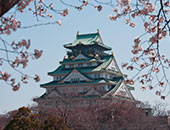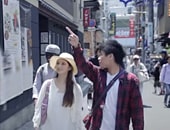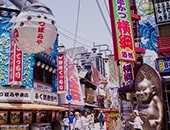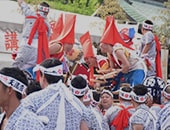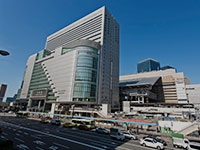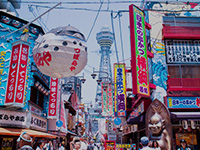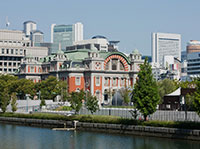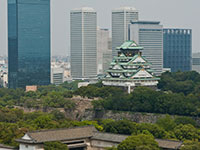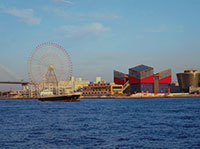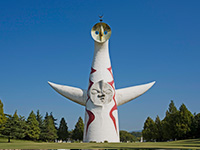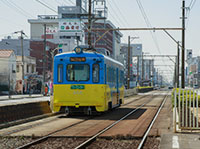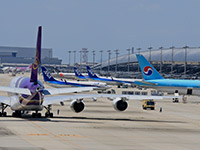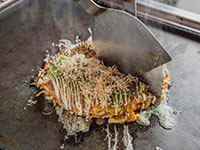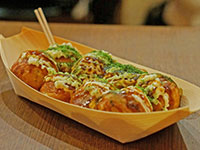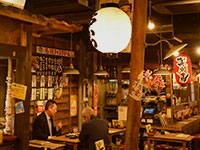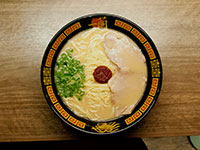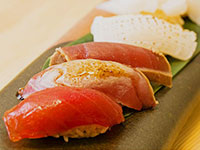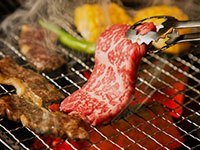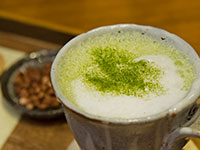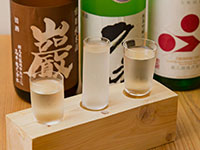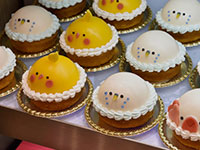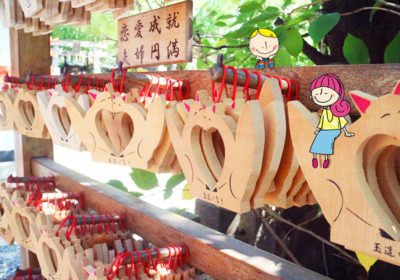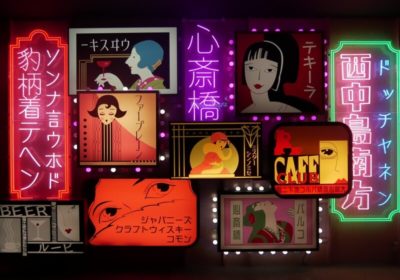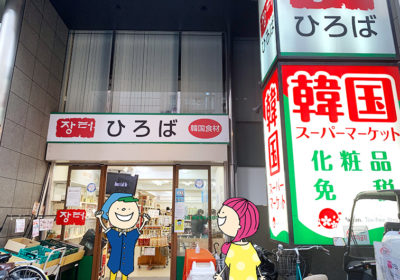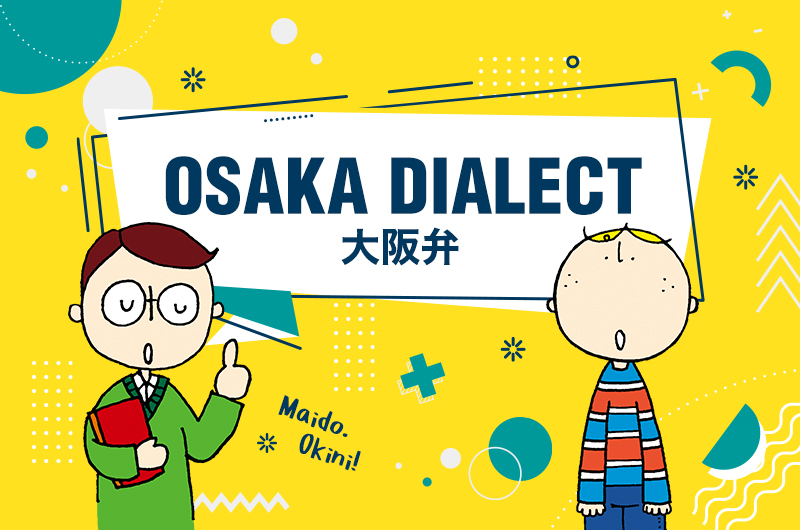

Osaka Bob FAMILY
What’s so special about Osaka dialect?
A primer on Osaka words and conversation
Maido! Manabu here!
I was born and raised in Osaka. I’m a real, live, Kansai person. And today I want to tell you about the Osaka dialect. A lot of people say that they like the sound of our dialect and the flow of Osaka conversations, but that there are so many words that they don’t understand. Well, that’s why I’m here.
(Disclaimer: I won’t be going into the differences that make Osaka dialect distinct within the Kansai dialect.)
[Contents]
- Everyday conversations sound a little different
- Try saying it in Osaka-ben!
- Osaka dialect for your trip!
- Quiz time: Do you know these Osaka words?
■ Everyday conversations sound a little different
First, have a look at a conversation between me and Osaka Bob.
(Osaka small talk using Osaka dialect)

Kore, ikishi ni kо̄tekiten
(I bought this on my way over.)

Sore, nannan?
(What is it?)

Metcha kawaii sara ya nen.
(It’s a super cute plate.)

He, honma ya na! Sara nan?
(Oh yeah, it is. Is it new?)

Sara ya de!
(It is new!)
Osaka people, or really anyone with experience in Kansai dialect wouldn’t have any trouble following the conversation. But other people might get confused. Not only is Manabu making a silly pun, he’s using a very Osaka expression to do it.
You might know that the word sara means dish or plate in standard Japanese, but it also means new in Osaka. When we add in all the other colorful Osaka dialect it makes it clear that we are joking around. Osaka and its dialect are well known throughout the country for telling tons of jokes and having a great sense of humor.
Here’s the same conversation, but in standard Japanese.
【Osaka small talk using standard Japanese】

Kore, koko ni kuru tochū ni
katte kitan da.
(I bought this on my way over.)

Sore, nan na no?
(What is it?)

Totemo kawaii sara da yo
(It’s a super cute plate.)

He, honto da ne! Shinpin na no?
(Oh yeah, it is. Is it new?)

Shinpin da yo!
(It is new!)
Let’s dissect it a little further. It’s easy for me since I grew up here, but I know a lot of people have trouble with Osaka dialect when they first travel here. He’s great at it now, but Bob had a lot of trouble understanding people too when he first arrived.
■Ikishini
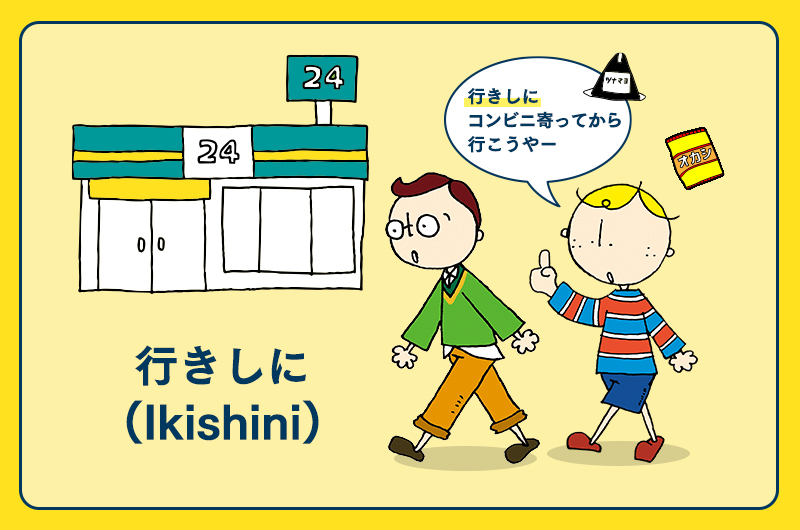
Ikishini simply means on the way, whereas kaerishini means on the way back. These phrases aren’t unique to Osaka, but actually used in much of West Japan. And it’s very likely that if you use them with people from Tokyo or other parts of East Japan, they wouldn’t understand you.
If you type out ikishini on a keyboard, out pops the kanji 生き死に, which means life or death. Be careful with this one, you don’t want to be misunderstood in text or in conversation!
■Nannan?
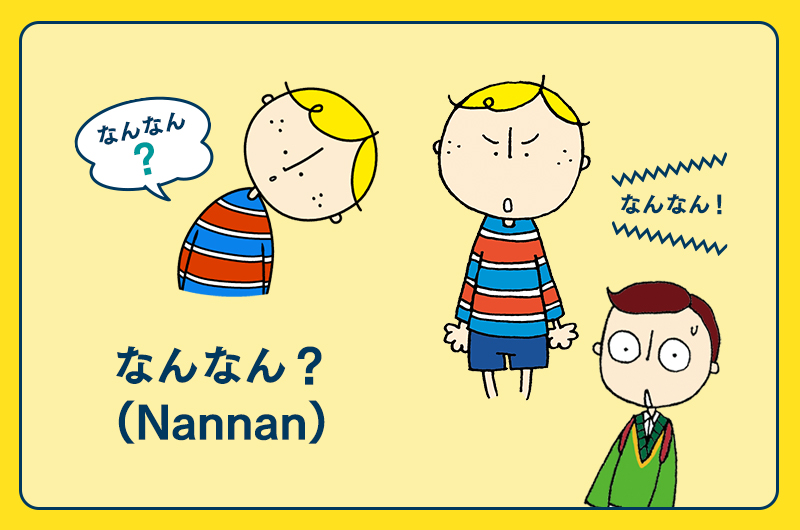
This one is all about intonation. It can sound like an innocent question or an angry statement of disbelief mixed with disapproval.
In English, it would be the difference between:
What IS that?
—and—
What is THAT?
And this phrase is apparently used in Gunma Prefecture too. It may not have even originated in Osaka, but we use it a lot.
■Sara
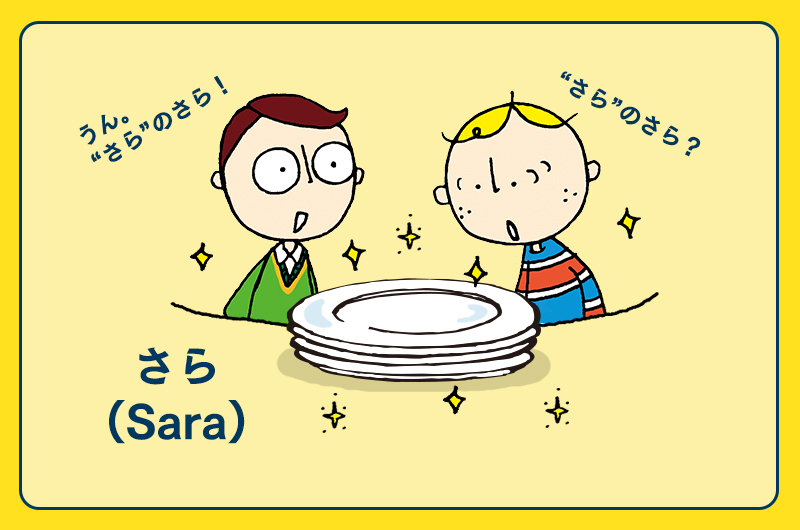
This word means brand new or yet unused. It’s derived from the word massara of similar meaning. So when we’re talking about brand new dishes or a clean dish, we can call them sara no sara. It’s a silly pun, but with the right light-hearted delivery you can draw a few laughs.
■Try saying it in Osaka-ben!
Here are some simple phrases you can try in Osaka-ben (Osaka dialect). See if you can remember them all!
konnichiwa → maido
arigatо̄ → о̄kini
totemo → metcha
chigau → chau
naze → nande ya nen
In fact, the name of this website, MAIDO is a popular phrase in Osaka dialect. It’s a friendly greeting that feels so familiar to Osaka people. I hope you can remember this word above anything else.
You’ll hear the phrase maido о̄kini for thank you and even sometimes people throw in a double thank you о̄kini, arigatо̄. This double, over the top attitude is a hallmark of Osaka and one of the reasons the city is known for its high spirits and social charms.
Here’s another cheesy conversation you might hear on Osaka streets that mixes in a little humor and Osaka dialect. I kid you not, I have heard people say this in real life. On more than one occasion.
Kore, chau chau chaun?
(Isn’t this a chow chow?)
Iya kore, chau chau chau de!
(No, this isn’t a chow chow!)
Chau chau, kore chau chau ya de!
(No, no, this is a chow chow!)
Your head might be spinning with all those chau‘s, but I promise you, this is a conversation every Osakan knows well.
■Osaka dialect for your trip!
Here are a few more phrases that might come in handy during your trip to Osaka. Learn these, and you’ll be able to enjoy your time here just a little bit more.
■Shaa nai na
Have you ever heard the phrase shikata nai ne? It means oh well, or there’s nothing we can do about it. It’s a very popular phrase and this is the Osaka equivalent. Meet any lighthearted complaint with a shaa naina and you can make a new friend easily.
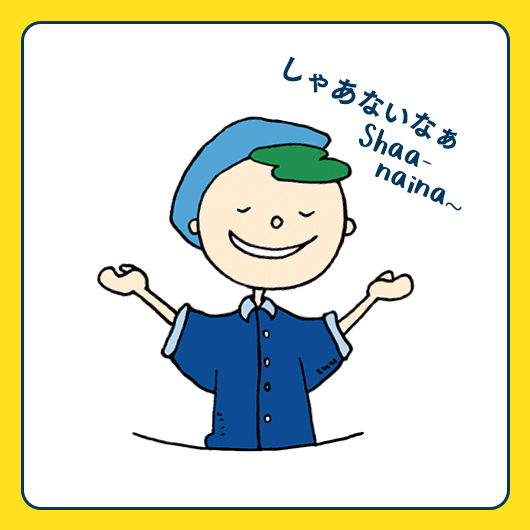
■О̄kini
One of my Osaka dialect favorites, this is the word for thank you.
When you visit a store or restaurant in Osaka, you’ll likely hear this word directed at customers. О̄kini sounds like a regular thank you with a local twist, like a special version of thank you.
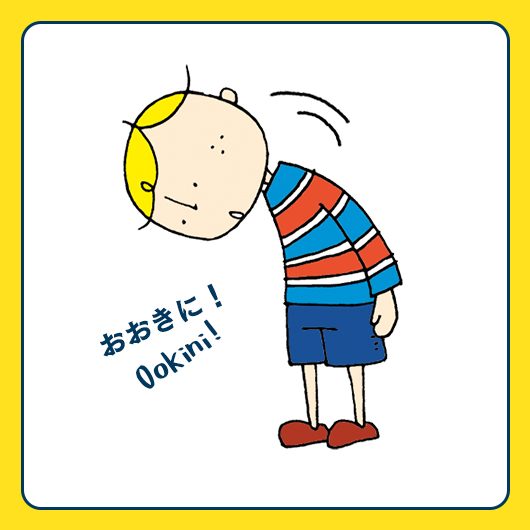
■Nioteru
Essentially, this is the same as the word niatteru from standard Japanese, meaning that looks good on you or that suits you. But somehow, it doesn’t feel as direct. It’s much easier to say and you can use nioteru to compliment someone you’ve just met, but without coming on too strong.
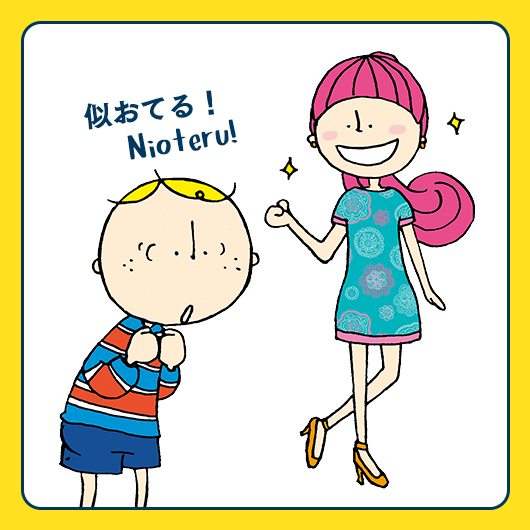
Osaka dialect has a reputation for being rough and sometimes scary, but that is really only a part of the local language. There are plenty of ways to be charming, friendly, and cute in the language too. It’s a fun dialect to speak and a lot of people from out of town take a stab at it when they visit Osaka. And the thing is, most people will think it’s funny, or cringe, but regardless they will take it as an attempt at closing the communication gap. Most people love it when you try your best.
■Quiz time: Do you know these Osaka words?
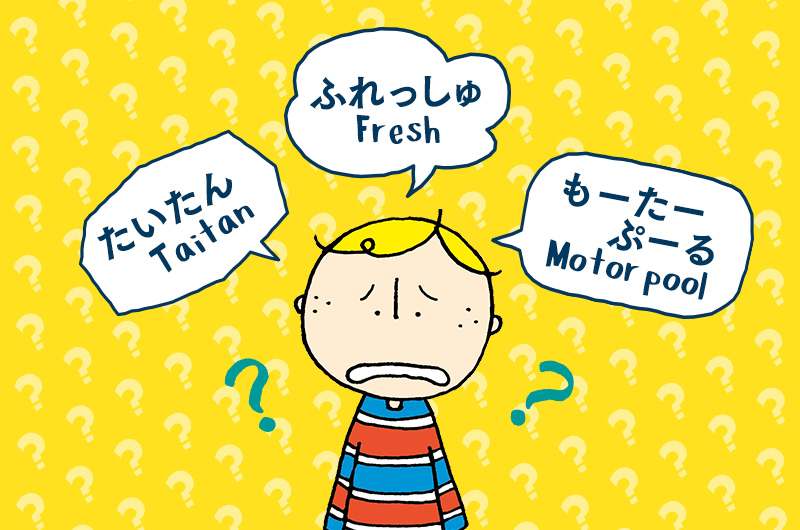
If you’ve gotten this far, you’ve probably picked up a few phrases in Osaka’s language. Here are 3 more words to try. What do you think they mean?
①Taitan
②Fresh
③Motor pool
They look simple, but you might be surprised when you find out what they mean.
Look for the answers in my next post about Osaka words and trivia!
If you enjoyed this mini tutorial and want to learn more, have a look through the Okini Talk Guide to brush up even more!

Osaka Bob FAMILY
The contents of this page were current at the time it was posted, but may differ from the present.
Text visible in this map is based on information from Map Tiler and may differ from actual geographical names.



